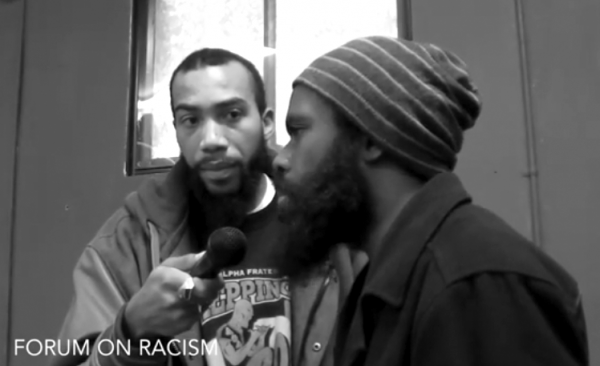
CBattle, as he has asked to be called for this interview, is originally from Florida, but currently resides near the Providence area. He works with youth in Providence, and on November 25th was one of seven people arrested for allegedly engaging in disorderly conduct on the highway during a Ferguson protest.
CBattle was kind enough to answer some questions for RI Future, the second in a series of interviews I’m working on with the PVD7. You can read the first interview with Tess Brown-Lavoie here.
RI Future: Why were you at the protest?
CBattle: My purpose for protesting is doing my civic duty to address the adversities and oppressions in society. In this particular instance justice has not been served, rather, unlawfulness is being justified, and its implications have a direct effect in the living of my people, all people. We are taught to police ourselves, because of the fear their actions have instilled into our conscious. These actions stem from a profile that is based on us, a target that has been placed on us and a stigma that has been cultivated since the time of America’s forefathers. The time has come for that conditioning to end.
RI Future: What motivates you?
CBattle: My motivation is the vision of a more progressive, productive, and self sustaining society. Too much we depend on the vehicles around us, waiting for the arbitrary to come and deliver us from our doom. Our deliverance starts with us. In my opinion we must refine ourselves first, in order that we may prepare for a society without chaos, one that is not reactionary but stationary.
RI Future: What kind of history/education/experiences have you had that brought you out to the march/rally?
CBattle: I was raised in the deep south, where such issues are about as frequent as the newspaper delivery. That alone has served as a constant reminder that oppression is relevant no matter how far north you travel. Of the murders that do get reported, there are still countless others that go unrecognized. I have two nephews aged 17, and they could easily be victims we are discussing, but before it hits home, before it hits me, I am doing my due diligence to see this come to an end.
RI Future: Where do you see this issue going? Do you hope for any political solutions to this?
CBattle: I would like to see this issue continue to resonate with the people, so that we may all collectively wake up and see what’s happening to us. Some Americans have highlighted some of the criminal action that victims of police brutality have engaged in, and to that point I would say what is the driving force for such actions? Why do young black and brown males turn to drugs or crime as a means of survival? Why is poverty only relegated to one section of our cities? Why does legal segregation still exist through zoning laws? These cycles have been perpetuated for far too long and who’s answering for the epidemic of drugs? Gun usage? The answer is not another dead piece of evidence. I am faithful the people will continue to provide the fire for these hot water topics, invigorate the call for social change. Our government can invoke any law or statute, but it is our responsibility to demonstrate humanity.We too, require a stable and equal plain to do so.
Here’s CBattle speaking at the forum, Racism, State Oppression, and the Black Community Ferguson Beyond on December 20th:
Steve Alquist is profiling people arrested at the November 25 BlackLivesMatter march that temporarily closed down Interstate 95 in Providence. Read the other interviews here:

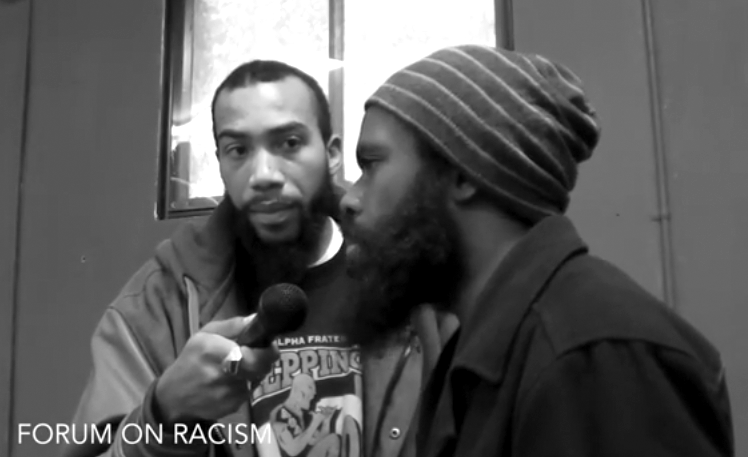


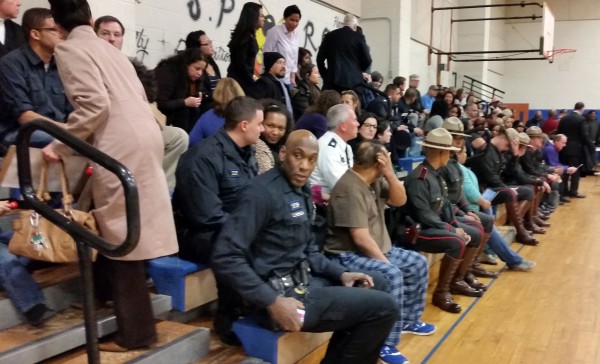 Last night’s “
Last night’s “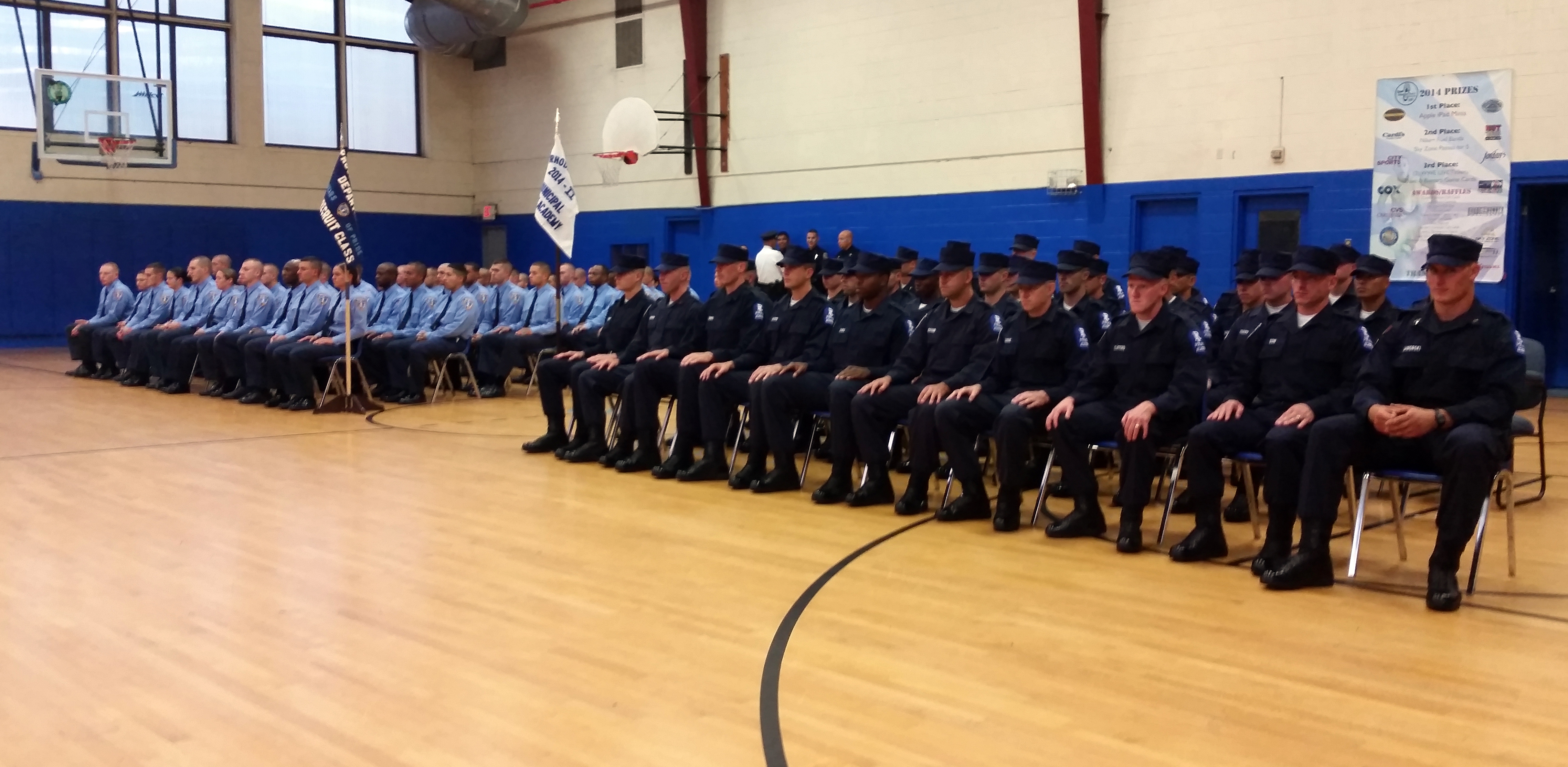
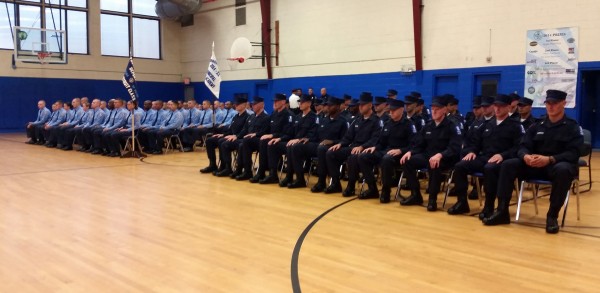 It can’t be easy to be a new police officer in the racially and politically charged post-Ferguson era, but yesterday 53 graduates of the Providence Police Training Academy begin their careers.
It can’t be easy to be a new police officer in the racially and politically charged post-Ferguson era, but yesterday 53 graduates of the Providence Police Training Academy begin their careers.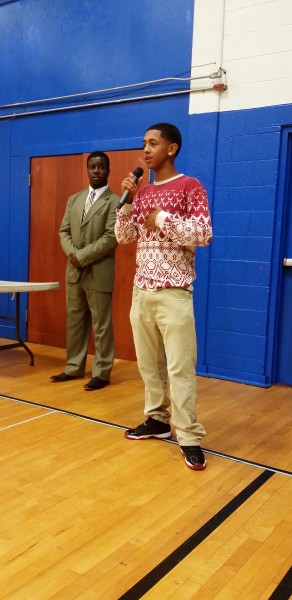 Kobi Dennis, organizer and “community guy” introduced the new police officers. “You are going to be on the street soon,” Dennis told the new recruits, then gesturing to the crowd behind him, added, “and these are the people you are going to be seeing.”
Kobi Dennis, organizer and “community guy” introduced the new police officers. “You are going to be on the street soon,” Dennis told the new recruits, then gesturing to the crowd behind him, added, “and these are the people you are going to be seeing.”